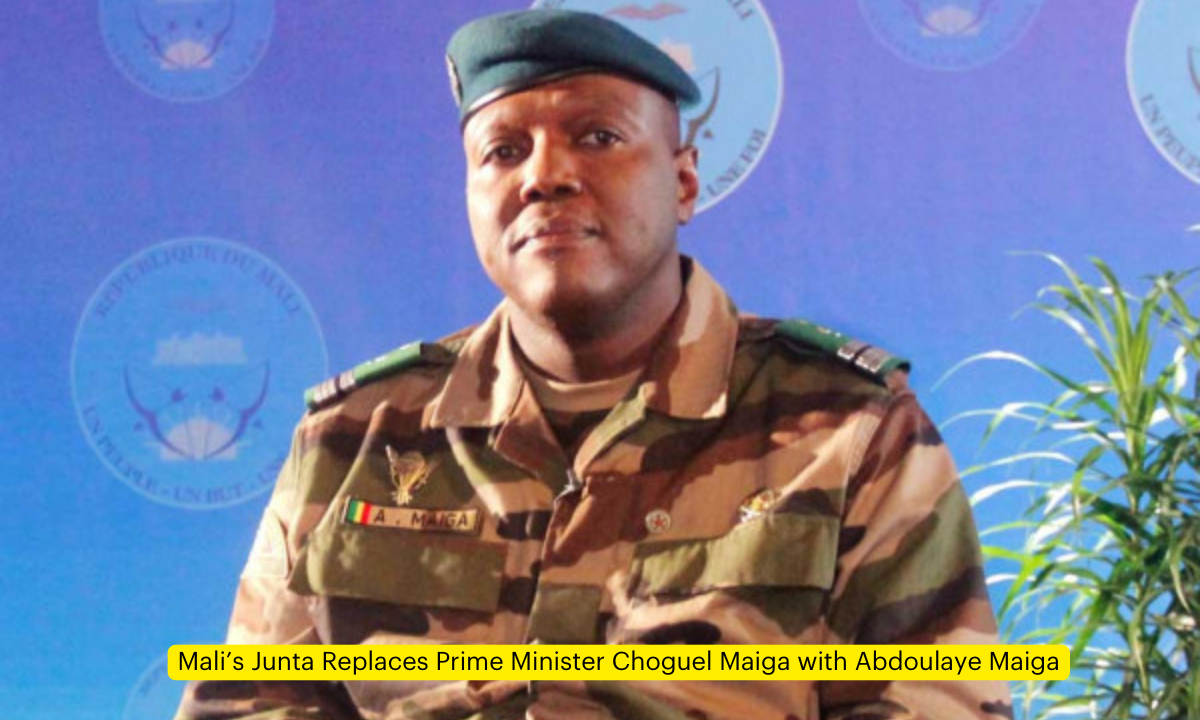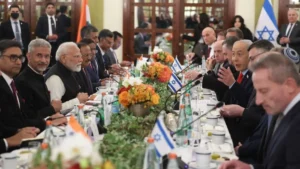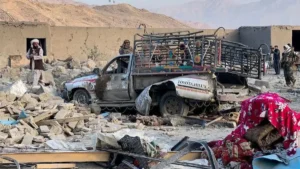The political landscape of Mali witnessed another significant shift on November 21, 2024, as the ruling military junta announced the dismissal of Prime Minister Choguel Maiga. Replacing him is the junta’s spokesperson, Abdoulaye Maiga, according to an announcement on state television ORTM. This decision comes amid growing criticism of the junta’s handling of the promised transition to democracy and signs of rising tensions within the country’s political circles.
Choguel Maiga’s Removal: A Fallout with the Junta
Choguel Maiga, who had served as Prime Minister since his appointment by the junta in 2021, found himself ousted after making remarks that directly challenged the military rulers. Over the weekend, he publicly criticised the junta for failing to organise elections within the 24-month timeline they had promised as part of a transition back to civilian rule. His statements reportedly infuriated the ruling generals, ultimately leading to his dismissal.
The junta’s decision to fire Choguel Maiga reflects growing internal divisions, even among those who initially supported the military’s rise to power. According to sources close to Choguel Maiga, his open condemnation of the junta’s decision-making process and governance style—particularly regarding the indefinite postponement of elections—had alienated him from the ruling generals.
Abdoulaye Maiga Appointed as the New Prime Minister
The junta swiftly replaced Choguel Maiga with Abdoulaye Maiga, a trusted spokesperson and ally within the military government. The appointment of Abdoulaye Maiga underscores the junta’s attempt to consolidate its power amidst rising dissent. While Abdoulaye Maiga has yet to outline his agenda as Prime Minister, his close alignment with the junta suggests that the military rulers are looking for a more compliant leader to advance their objectives during the prolonged transitional period.
Military Rule and the Delayed Transition to Democracy
Mali’s military junta first seized power in 2020 through a coup and solidified its control with a second coup in 2021. Following these events, the junta pledged to return the country to civilian rule through elections within 24 months. However, as February 2024 approached—the deadline for the promised elections—the junta announced an indefinite postponement, citing technical challenges as the primary reason.
This decision has drawn widespread criticism, both domestically and internationally. Many see the delay as a strategic move by the junta to retain power, further eroding confidence in the transition process. For Choguel Maiga, the lack of transparency and debate surrounding the postponement was a major point of contention. He told reporters that he was not even informed of the junta’s decision beforehand, calling the process “secretive and without the Prime Minister’s knowledge.”
Summary of the News: Mali’s Junta Appoints Abdoulaye Maiga as PM
| Heading | Details |
|---|---|
| Why in News | The military junta in Mali dismissed Prime Minister Choguel Maiga on November 21, 2024, and appointed Abdoulaye Maiga as his replacement. |
| Reason for Dismissal | – Choguel Maiga criticised the junta for failing to organise elections within the promised 24-month transition period. – He accused the junta of making decisions in secrecy without involving him. |
| Static | Capital: Bamako Official languages: Bambara, Soninke language, Fula, Hassaniya Currency: West African CFA franc |
| New Appointment | Abdoulaye Maiga, the junta’s spokesperson, was named as the new Prime Minister. |
| Background on Junta | – The military seized power in 2020 and 2021 through successive coups. – Promised elections in February 2024 were postponed indefinitely, citing technical challenges. |
| Choguel Maiga’s Role | – Appointed as Prime Minister in 2021, he initially defended the junta’s policies, including its partnership with Russian mercenaries. – His recent criticisms, including delays in elections, led to his dismissal. |
| International Reaction | – ECOWAS and international allies have condemned the junta’s failure to transition to democracy and criticised its ties with Russian mercenaries. – Mali faces growing isolation and sanctions. |
| Domestic Impact | Rising frustration among Malian politicians and citizens as the wait for elections continues, further deepening political divisions. |
| Key Takeaway | The junta’s actions highlight internal tensions and their struggle to maintain legitimacy while indefinitely delaying Mali’s democratic transition. |



 India-Israel Strategic Partnership: UPI ...
India-Israel Strategic Partnership: UPI ...
 India-Israel Elevate Ties to ‘Special St...
India-Israel Elevate Ties to ‘Special St...
 Operation Ghazab lil-Haq: Pakistan Decla...
Operation Ghazab lil-Haq: Pakistan Decla...








